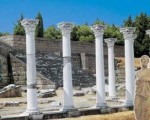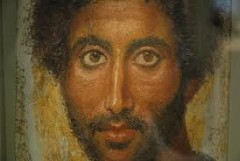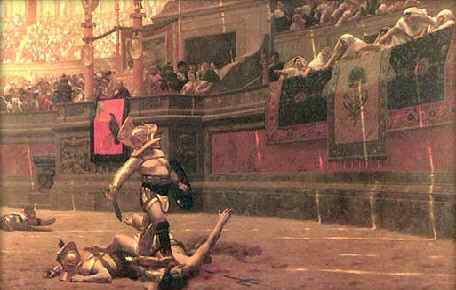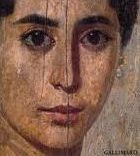CH.6 INCUBATION IN EARLY CHRISTIANITY (05/08/2011)
In our last release we saw the importance that dreams and incubation held in Antiquity in the Pagan and Jewish world, until around 300 A.C.

Christians in turn, perpetuating the long Jewish tradition, had exactly the same point of view and practices regarding dreams as members of other religions.
Remember that the Bible recounts over 200 dreams where God indicates the safest way to follow;
for example the dreams in the New Testament received by Joseph concerning the child Jesus, as wel as those received by the Apostles Peter and Paul. You remember how Joseph, a pious Jew, sees an angel several times in his dreams.
The angel tells him to take care of Mary, the pregnant young woman bearing the child Jesus. Also, in another dream the angel tells him to flee to Egypt with her and her child to escape Herod’s massacre. So, through the intervention of dreams, the child Jesus was saved.
He would later become Christ and change the established civilization.
In those days everyone considered dreams as being the natural way of communication between the human and the divine levels. Everyone knew that a man, through his dreams, could get answers to his questions and receive guidance from this information. Incubation was a current universal practice.
For example, around year 200 A.D. one of the most famous sanctuaries was built in the city of Pergame in Asia Minor, the ancient Greece, now located in Turkey, near the city of Izmir.

The temple was dedicated to the god of dreams and healing Asklepios. There priest/doctors practiced their famous dream therapy and interpreted pilgrim’s dreams.
At that same time, in the year 203, a young woman, Perpetua, was living in the part of North Africa, now called Tunisia, in the city of Carthage, not far from Tunis.

Perpetua was thrown in prison for her Christian faith. There, she wrote her life story before her martyrdom. Her story has been presented by Jung’s famous collaborator Marie Louise von Franz who also analyzed her dreams.


In her poignant account Perpetua tells us how she asked God to guide and support her through her dreams and especially to tell her if she should expect liberation or martyrdom. The process of incubation is very simple and furthermore she is in prison.
Perpetua indicates how she proceeds and relates :
“ My brother told me :

- Sister, you now find yourself in a position where you can ask to receive a vision which shows you if you have to expect martyrdom or liberation.
And I, she writes, conscious of the benefits that God had bestowed on me through the dialogues that I was accustomed to having with Him, and filled with trusting faith, I promised :
-Tomorrow I will tell you.
Then, I asked a vision and this is what was shown to me…”
She then tells her dream, which was received the next day and reveals the interpretation :
“We understood that the dream signified imminent martyrdom ; from then on we did not entertain any hope concerning this worldly life.”
Perpetua died in the arena and “she proved steadfast as she guided the death sword to her own throat when a young soldier trembled too violently to dispatch her cleanly.”* (Dan Graves)

Perpetua’s story confirms that dream incubation was widely practiced, by Christian people as people of different religions.
I could give other examples from around the world but my objective here is not to search for more general knowledge. My objective is to awaken a personal interest in you and to inform you as to the possibility of gaining access to a living dialogue with your dreams, should you be interested in trying this new experience for yourself.
Bibliographie
The passion of Perpetua, Marie Louise von Franz, Paperback
Great Women in Christian History, Curtis, Kenneth and Dan Graves,
ed. Pennsylvania : Wingspread Publishers and Christian History Institute, 2004.
Illustrations
The Christ of Rio Janeiro
The two portraits are Fayum Portraits, painted in Egypt, from the last century BC to the middle of 3rd century AD
14:34 | Permalink | Comments (2) | Tags: dreams, dream interpretation, christiane riedel, judith saint-laurent, incubation, dreams in early christianity, perpetua



Comments
You are absolutely right! Nor was it only the earliest Christians who turned to dreams for guidance. As late as the 19th century St. John Bosco used dreams to guide his entire ministry. Indeed, early in his life the Pope heard of his dreams and rebuked him for not taking them seriously enough, then ordered him to keep a dream journal. Many other saints before him relied on dreams to good effect, and doubtless many since who do not yet have the name of saint. Keep up the good work of getting the word out about the value of dreams!
Posted by: Dolores J. Nurss | 05/09/2011
Hi Dolores !
Thank you for your comments. I appreciate very much your interventions. In your last release you already spoke of St John Bosco and I had prepared for you an answer. But I did not had time to develop it and so you got no response.
You know, in France it is not a very well seen to say that the dreams are God's voice. People immediatly say you are a sect and flee away. It happened me several times with journalists of newspapers, radio and TV.
But it is exactly the task that my dreams 20 years ago gave me to realize.
When I will have some more time I will later speak in details about these subjects.
I apologize for my mistakes in English.
Do you go to Rolduc in June ? Perhaps we will meet there ?
Christiane
Posted by: Christiane Riedel | 05/09/2011